Opinions provide multi-dimensional perspectives oneducation in the digital age.
According to Dr. Vu Quang, Acting Principal of Ho Chi Minh City School of Education Management, Head of the Organizing Committee, with the strong explosion of information technology, the Government has issued Decision No. 131/QD-TTg approving the Project "Enhancing the application of information technology and digital transformation in education and training for the period 2022-2025, with a vision to 2030" to create breakthroughs in innovation in education and training activities; at the same time, identifying learners and teachers as the center of the digital transformation process; the benefits brought to learners, teachers and people are the main measure to evaluate the success of digital transformation. "The workshop aims to find appropriate scientific solutions to contribute to the development of professional capacity for teachers and managers, meeting the requirements of educational innovation in the digital age", Dr. Vu Quang emphasized.
At the workshop, delegates raised the current situation and shared experiences on teaching and assessment methods in the direction of developing students' capacity in subjects in the general education program; studied methods and measures for training and fostering the team of managers and teachers in schools to improve the effectiveness of educational innovation and implement the 2018 General Education Program... Opinions affirmed the role and position of digitalization and the difficulties and challenges of education in the face of innovation requirements; on the current situation of digital transformation in general schools; along with the current situation of online learning of students, the current situation of management of teaching and educational activities, and training of teachers and managers at educational institutions.
Mr. Nguyen The Quang, Department of Education and Training of Ninh Thuan province, conducted a survey and pointed out some shortcomings in the management of training and digital transformation activities at educational institutions. According to him, the current challenge is that many teachers and managers are still very vague in their perception and do not fully understand the concept of digital transformation; the information technology infrastructure is not synchronized; digital human resources are both lacking and weak; limited information technology application skills, etc. "The survey results show that the teaching staff is not really ready for digital transformation in schools. Therefore, it is necessary to first foster awareness of the importance of digital transformation, knowledge and technological capacity for educational managers and teachers to help them have the knowledge to build strategies," Mr. Quang suggested.
Director of Hau Giang Department of Education and Training Nguyen Hoai Thuy Hang expressed difficulties in developing capacity for teachers and managers.
According to Associate Professor Dr. Chu Cam Tho, Head of the Department of Educational Evaluation Research, Vietnam Institute of Educational Sciences, the 2018 General Education Program has been born, orienting the development of students' capacity and qualities. The shift from a content-based program to a competency-based and quality-based program requires change, leading to the need to conduct synchronous research in all three components of the cycle: Program - Teaching - Assessment. The goal of the 2018 General Education Program is competency-based education, or in other words, the task of teaching in particular and education in general is to determine the current capacity level of students and how to support students to the next level. In practice, schools and teachers have been facing difficulties in teaching and assessing students according to the competency approach when they still have the habit of assessing based on the knowledge that students have.
“Many teachers still mechanically teach according to general instructions, without proactively adjusting to help students progress compared to themselves. The majority of students have few opportunities to study close to their abilities or to adjust themselves to study effectively, suitable for themselves. Besides, to assess learners' abilities, teachers and managers need to be proficient in many tools to assess students' learning process, not just using tests as before. Changes in assessment requirements lead to the need to perceive and organize scientific and systematic assessment activities,” Associate Professor, Dr. Chu Cam Tho analyzed.
Experts believe that the successful implementation of the 2018 General Education Program to ensure sustainability is the task of the entire education system. Practices in schools and localities show that teachers are expecting a leading change in examinations and assessments. However, if only regulations are changed without becoming actions of teachers, schools, and management agencies, it will be difficult to innovate the assessment of the learning process and outcomes of students. Although they have been trained through training programs of the education sector, in order to effectively implement regulations on assessing learners' capacity, teachers need to be guided and create a close practice context. The determination to change the assessment system combined with the digital transformation process can create the expected success. Director of Hau Giang Department of Education and Training Nguyen Hoai Thuy Hang said that the implementation of digital transformation in education in the locality faces many difficulties, not only in terms of infrastructure and information technology level but most importantly, the human factor. Currently, the teaching staff meeting the 2018 General Education Program in Hau Giang is very lacking.
Conducting a survey of 208 principals of general schools in many localities across the country, Mr. Phan Tan Chi, Ho Chi Minh City School of Education Management, said that principals of general schools are currently trained and fostered to meet the required standards. However, in the digital age with new requirements, in addition to following the requirements of management, self-study and experience, principals themselves have the need to foster and develop professional capacity to perform tasks, meeting the requirements that the digital age places on each person. "We often say 'slow but sure' but developing capacity for principals of general schools in the digital age is 'slow and steady'", he confided.
With multi-dimensional perspectives and different approaches, the workshop outlined an overall picture of the advantages, difficulties, opportunities and challenges for Vietnamese education in the digital age. Accordingly, in order to develop the capacity of teachers and education managers, and at the same time implement the 2018 General Education Program according to the roadmap, ensuring the goal requires the synchronous participation of all forces in society. In particular, each manager must always be proactive, constantly learn, foster and promote their capacity to meet the requirements of school management in the digital environment.
THUY TRANG
Source



![[Photo] General Secretary To Lam receives Chief of the Central Office of the Lao People's Revolutionary Party](https://vphoto.vietnam.vn/thumb/1200x675/vietnam/resource/IMAGE/2025/5/30/140435f4b39d4599a3d17975dfb444c5)
![[Photo] National Conference "100 years of Vietnamese Revolutionary Press accompanying the glorious cause of the Party and the nation"](https://vphoto.vietnam.vn/thumb/1200x675/vietnam/resource/IMAGE/2025/5/30/1cf6cd5c8a934ebfa347028dcb08358c)

![[Photo] Journalists moved to tears at the Memorial Service for the soldiers who died in Gac Ma](https://vphoto.vietnam.vn/thumb/1200x675/vietnam/resource/IMAGE/2025/5/30/9454613a55c54c16bf8c0efa51883456)
![[Photo] A delegation of 100 journalists from the Vietnam Journalists Association visits the soldiers and people of Truong Sa island district.](https://vphoto.vietnam.vn/thumb/1200x675/vietnam/resource/IMAGE/2025/5/30/0984a986227d4e988177f560d2e1563e)
![[Video] Announcing the score distribution of the 2025 HSA Competency Assessment exam](https://vphoto.vietnam.vn/thumb/402x226/vietnam/resource/IMAGE/2025/5/30/8f7b551d1e854f02a1873dcbf7f7a9ef)




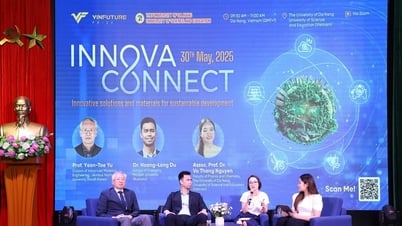
































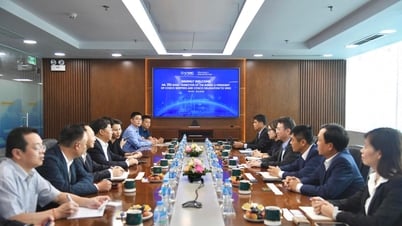

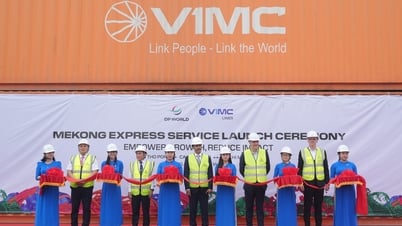












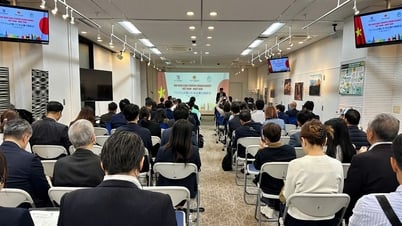




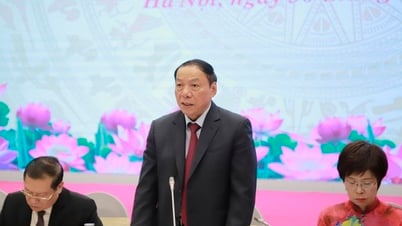

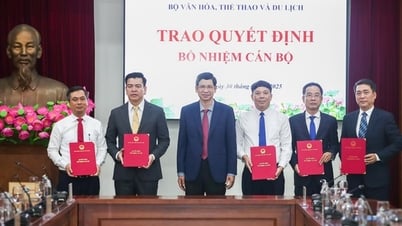























Comment (0)